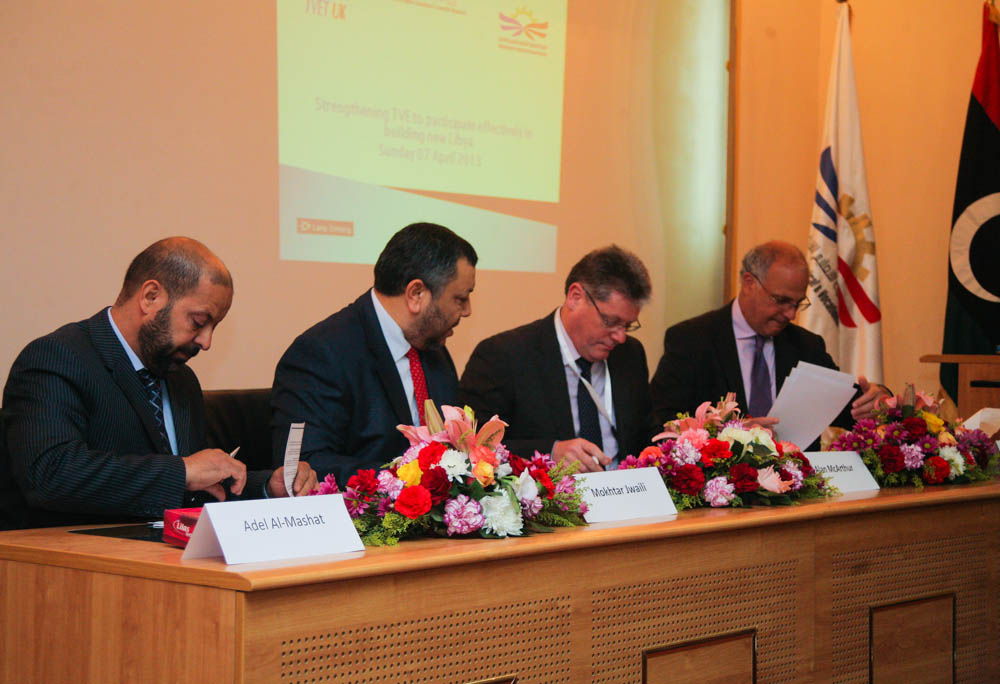By Tom Westcott.

Tripoli, 8 April 2013:
Libya and the UK are joining forces to map out a future of vocational training opportunities . . .[restrict]for Libyans.
The chairman of the Libyan National Board for Technical and Vocational Education (NBTVE), Mokhtar Jwaili, yesterday, Sunday, signed a Memorandum of Understanding (MoU) with the executive director of TVET UK, Alan McArthur.
The Deputy Minister of Higher Education and Scientific Research, Adel Al-Mashat, who was also present, said that many Libyan academic staff had qualified in the UK and that Libya was keen to build good relations with Britain through education.
“We would like the UK to help us build our education system,” he said, “we are looking to cooperate with, and learn from, the UK,” Al-Mashat said.
The MoU paves the way for TVET UK, which represents British companies and colleges specialising in vocational training, to support Libyan in its ambition to develop vocational skills to build the country’s capacity.
Jwaili said that NBTV has “ambitious plans to reform the TVET sector, with a focus on international collaboration.” He added that there were plans to link institutions and colleges to both the private and public sectors, establishing sector skills councils, which would concentrate initially on the most in-demand sectors within the Libyan economy.
“The role of technical and vocational education providers is particularly important in Libya for adults who had a substandard education under the Qaddafi regime but have the potential to achieve more for themselves and society with the right training,” Ibrahim El Mayet from ie. Consultancy, the Libyan company which organised the TVET visit, told the Libya Herald. “We have so much untapped potential in Libya,” he added, saying that vocational coursescould fill the current training gap in Libya for adults.
Britain’s Ambassador in Libya, Michael Aron, who gave the welcoming address at the ceremony, said “education is a fundamental component of building a new state.” He added that education was one of the priority areas that UK trade and Investment (UKTI) had identified where Libya most needed support. [/restrict]








